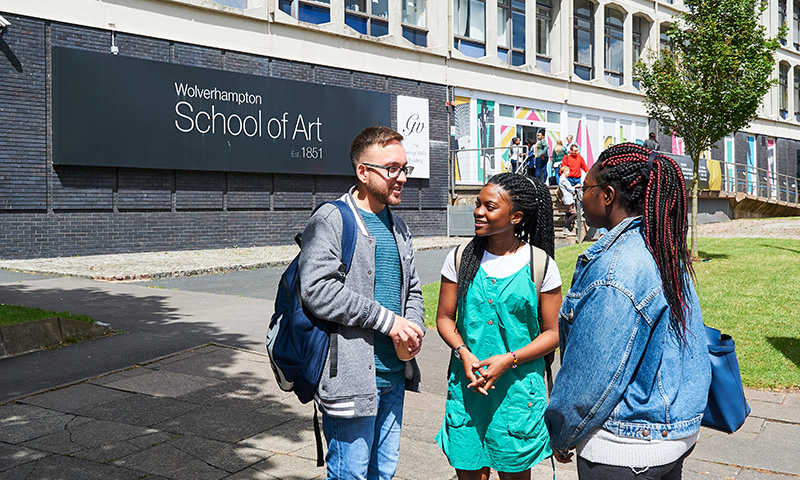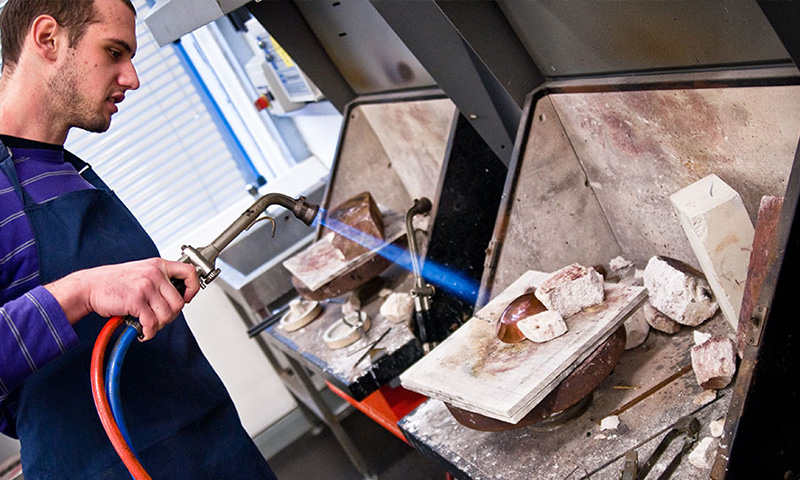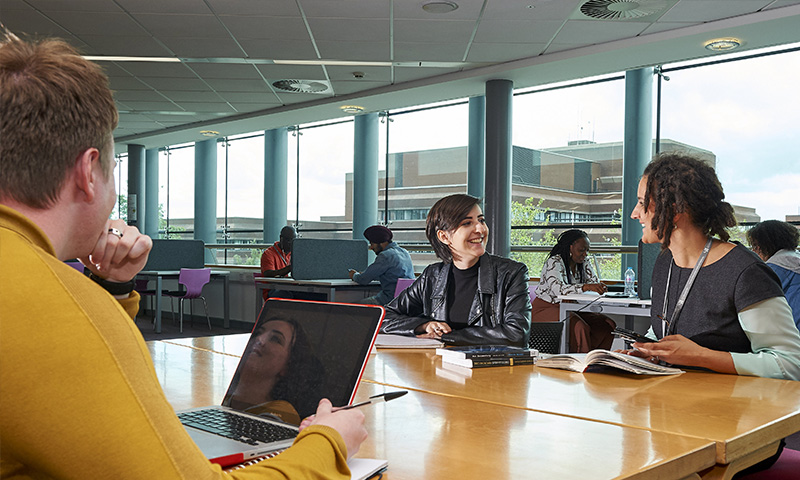We have a lovely campus here at Wolverhampton, with great facilities: two fully- equipped television and radio studios, newsroom, HD cameras, editing suites, and a dedicated enthusiastic team ready to help you at anytime. This course is designed to meet current industry standards for broadcast and print journalism, where the use of multimedia news packages is essential for delivering news to broad audiences. Our course offers placements, career advice and other networking opportunities for all of our students and considers the development of innovative and entrepreneurial skills to allow students to engage in local, national and international media, working in partnerships or as freelancers, and connecting them with employers and professional bodies.
You can showcase your work and start building your own audience by contributing to our students online news channel, check out the latest student work and follow us on Twitter: @weare_BCN.
Students from all years of the course can contribute to the news channel; we encourage you to work in teams to cover Radio, TV and Online media creation. It is a great opportunity for you to act like journalists in a controlled and safe environment.
Comment from our External Examiner:
"Each year the samples material I have read contained wonderful work from exciting modules with an impressive range of academic and practical assessment tasks. I appreciate that a great deal of work goes into how to achieve the best results from students. The internal markers applied impressive standards in grading, providing high-quality feedback and should be congratulated on the quality of the Course content."
Further Information
Bianca Fox is a Senior Lecturer in TV, Broadcasting and Journalism at the University of Wolverhampton, UK. Before this, she held a Lecturer position at the University of Huddersfield. She is a former freelance journalist and holds a Ph.D. in Media and Communication Studies. Bianca has an outstanding international scientific background, she was a Visiting Scholar at the University of Westminster in 2011 and at the University of Paris III: Sorbonne Nouvelle in 2015, and has published in international journals from the UK, Italy, Germany and the USA. She founded the Research Centre CCMRC.eu, is an active member of important international scientific associations, including IAMCR, ECREA, MeCCSA, and an active editorial board member of Journal of Journalism and Mass Communication, Interpersona, and International Journal of Communication and Health. Broadly, and her research interests lie in multi-platform journalism, digital culture, and media sociology.
Qualifications: PhD in Media and Communication Studies; Fellow of the Higher Education Academy; Postgraduate Certificate in Higher Education; MA in Media and Communication Studies; Bachelor of Arts (English Literature); LLB (Bachelor of Laws).
Maria Urbina’s professional experience has focused on online media, corporate communications and international journalism. She has worked as online editor as well as PR manager in different Chilean media outlets and institutions. Her professional activity includes developing media content for multimedia platforms as well as implementing media strategies for corporate communications. As a foreign correspondent, Maria has covered political and economic affairs in Europe and Central America for Spanish speaking newspapers and magazines, such as the economic magazine America Economia and La Segunda. She was awarded the Prize for Economic Journalism by the CAF-Development Bank of Latin America and Instituto de la Empresa in 2014. Maria’s joined the University of Wolverhampton in 2015 as Senior Lecturer where she teaches journalism related modules. Her teaching experience includes positions at Nottingham Trent University and The University of Sheffield. Maria's academic interests are political culture, media, and multimedia journalism in the global south.
Qualifications: PhD in Politics; MBA; PGDip in Marking and Management; BA in Media Studies and Journalism; BA in History.
Manuel Hernandez - A former Reuters correspondent, Manuel has worked for numerous global media outlets, such as CNN and other multinational corporations. He has focused his work on two main areas: generation of news content for specialised audiences (financial, business and political affairs) and planning and implementing corporate communications, PR and marketing plans. Manuel is a PhD candidate at the University of Leeds. Originally from South America, where he also worked for Brahma and Unilever in marketing and public relations, he has been teaching media-related modules at the University of Wolverhampton since 2004. He has a particular interest in Data Journalism, CSR and NPOs.
Qualifications: M.Dip in Media Management; MSc in Public Relations; PGCE in Higher Education; Fellow of the Higher Education Academy; Licentiate in Media Studies and Journalism.
Media practitioners - Guest lecturers from the industry include practitioners from ITV, 5Live, Wolverhampton Express & Star, Big Centre TV, etc.


/prod01/wlvacuk/media/departments/digital-content-and-communications/images-2024/240328-Varsity-Line-Up-Resized.jpg)
/prod01/wlvacuk/media/departments/digital-content-and-communications/images-18-19/220325-Engineers_teach_thumbail.jpg)
/prod01/wlvacuk/media/departments/digital-content-and-communications/images-2024/240404-Digital-Humanities-Training-Resized.jpg)
/prod01/wlvacuk/media/departments/digital-content-and-communications/images-2024/240320-Uzbekistan-Resized.jpg)
/prod01/wlvacuk/media/departments/digital-content-and-communications/images-2024/240229-The-Link-Resized.jpg)
/prod01/wlvacuk/media/departments/digital-content-and-communications/images-2024/240404-Pharmacy-Students-Resized.jpg)





